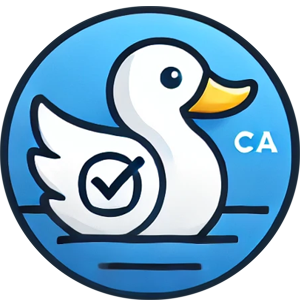Platform Accountability and Content Moderation
by ChatGPT-4o
Social media and digital platforms are our new public squares—places where ideas spread, debates rage, and, sometimes, chaos ensues.
Platform accountability and content moderation are about making sure these powerful companies don’t just profit from our attention, but also take responsibility for the safety, fairness, and quality of the digital spaces they create.
It’s a tricky balancing act: protect free expression, prevent harm, and ensure everyone gets a fair shot to be heard. Easy, right? (Spoiler: Not even close.)
1. The Landscape: Where Are We Now?
- Private Power, Public Impact: A handful of global companies (think Meta, Google, X/Twitter, TikTok) control the flow of information for billions.
- Content Rules: Platforms have detailed guidelines, algorithms, and armies of moderators—but enforcement can be inconsistent or opaque.
- Policy Pressure: Governments are pushing for more regulation, especially on hate speech, misinformation, child safety, and election interference.
- User Pushback: Concerns over censorship, “shadow banning,” or arbitrary enforcement are rising—sometimes louder than the cat memes.
2. Who’s Most at Risk?
- Marginalized communities: Can face both over-moderation (silencing) and under-moderation (harassment or hate).
- Children and youth: Are especially vulnerable to harmful content, predatory behaviour, and manipulation.
- Smaller creators and activists: Risk having their voices suppressed by mistakes, algorithms, or unclear rules.
- Everyone: Is affected when content moderation (or lack thereof) shapes public discourse, elections, and social norms.
3. Challenges and Stress Points
- Transparency: How are moderation decisions made? Who decides—and can you appeal?
- Algorithmic Bias: Automated moderation can reinforce existing inequalities or silence dissent.
- Global vs. Local Norms: Platforms operate worldwide but must navigate very different cultural and legal standards.
- Accountability Gaps: Companies can dodge responsibility by blaming algorithms, users, or “community guidelines.”
- Chilling Effects: Overzealous moderation may deter legitimate debate, creativity, or whistleblowing.
4. Solutions and New Ideas
- Clearer Standards: Require platforms to publish transparent, understandable rules—and stick to them.
- Robust Appeals: Users need timely, fair ways to challenge moderation decisions.
- Independent Oversight: Create third-party watchdogs, ombudspersons, or regulatory bodies to keep platforms honest.
- User Education: Teach digital citizenship, critical thinking, and rights/responsibilities online.
- Collaboration: Platforms, governments, and civil society must work together—not just point fingers.
5. Community and Individual Action
- Know Your Rights: Learn platform policies, how to report, and how to appeal decisions.
- Demand Transparency: Push for clearer moderation processes and regular public reporting from platforms.
- Support Diverse Voices: Stand up for fair treatment and against both harassment and unjust silencing.
- Report Responsibly: Use reporting tools thoughtfully to flag real harm, not just disagreeable views.
- Engage in Dialogue: Participate in civic debates about online rights, harms, and the role of big tech.
Where Do We Go From Here? (A Call to Action)
- Policymakers and platforms: How can you ensure content moderation is fair, transparent, and accountable?
- Users and communities: What would help you feel safer and more empowered online?
- Everyone: How do we ensure our digital commons is open, safe, and vibrant—for all, not just a few?
The power of platforms is huge.
So is our collective responsibility to hold them accountable.
“A healthy digital society needs platforms that are open, fair, and answer to the people—not just the shareholders.”
Join the Conversation Below!
Share your stories, questions, or solutions about platform accountability and content moderation.
Every perspective brings us closer to a digital world that works for everyone.
